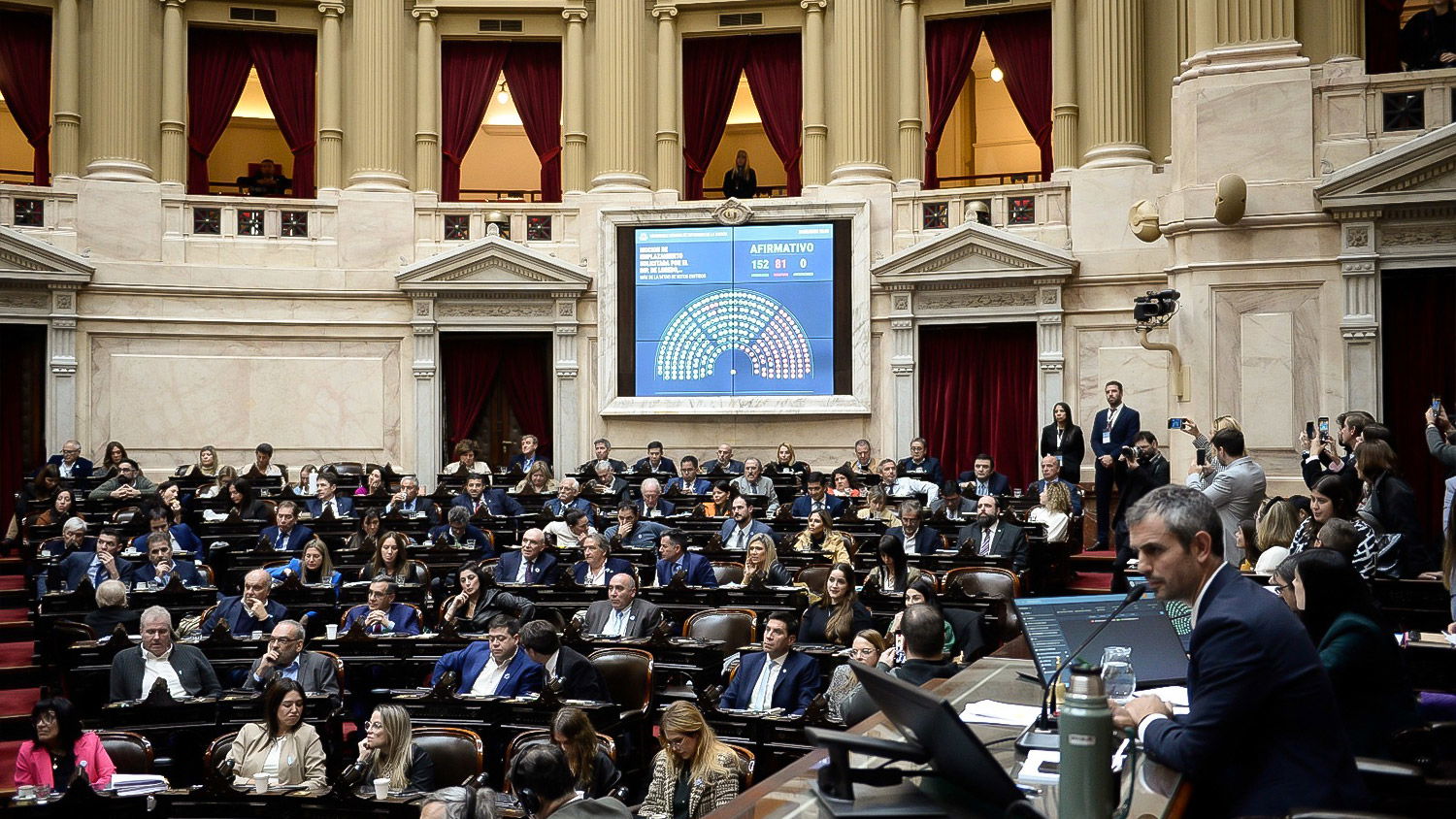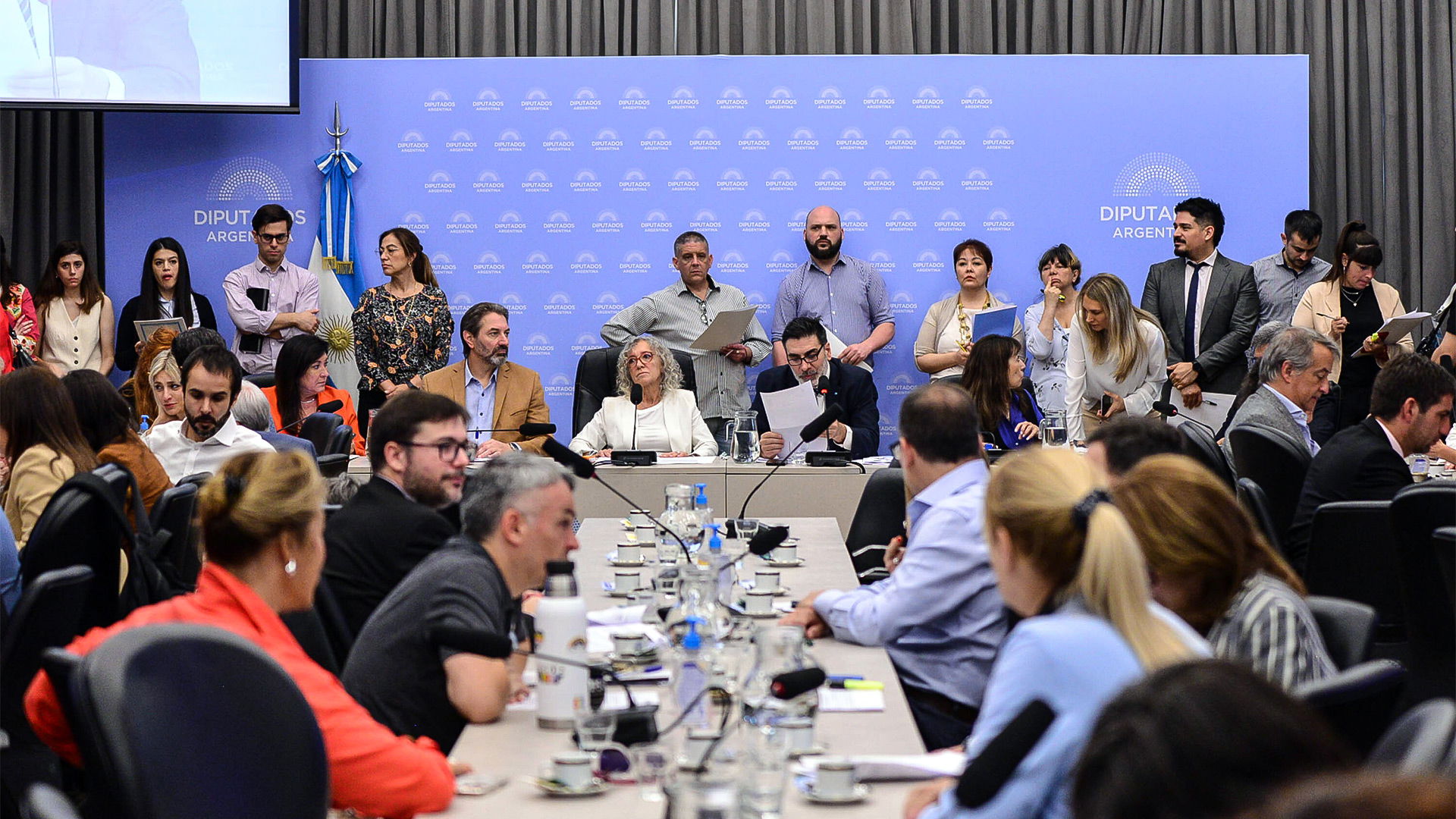Argentina: Law on online gaming and problem gambling likely to be approved this week in the Chamber of Deputies

This Wednesday, November 27, a special session will be held in Argentina's Chamber of Deputies, where the opposition will try to achieve the approval of a bill to regulate online gambling and combat gambling addiction. A majority opinion was achieved during a scandal in a plenary session attended by five commissions. The main point of debate and discord is a proposed prohibition on advertising gambling.
According to local media, the Lower House is about to approve the legislation that seeks to curb gambling addiction and cyber-betting, with strong restrictions on advertising. Among other measures, the bill to be voted on restricts advertising in social networks and the media, as well as the sponsorship of soccer teams.
The debate will take place amid a strong lobby by the gambling companies to prevent the initiative from being discussed, according to the President of the Addiction Prevention and Drug Trafficking Control Commission, Mónica Frade.
En la votacióm sabrás quien es quien. Paremos las apuestas en linea y en el deporte. Paremos con la publicidad que invita a un camino sin retorno.
— Monica Frade (@MonicaFradeok) November 22, 2024
Por la salud de todos/as.@maxiferraro @JuanmaLopezAR @M_Campagnoli @rogetandil @VictoriaBorre @EstebanPaulon @Nicolas_Massot pic.twitter.com/9TaX3uyr63
Despite the lobbying efforts, it is expected that the session will take place. Although it was requested by the Civic Coalition party, with the contribution of Unión por la Patria, Encuentro Federal and Democracia para Siempre, and the Left; the Unión por la Patria and PRO, UCR, and LLA parties have anticipated that they will give a quorum to enable the debate to take place.
Main points of the bill
Two reports were issued by the Commissions of Addiction Prevention and Drug Trafficking Control; Social Action and Public Health; Communications and Information Technology; Criminal Legislation; and Families, Children and Youth.
The majority opinion, the first to be voted on, was signed by members of Unión por la Patria, Encuentro Federal, Democracia para Siempre, Coalición Cívica, Frente de Izquierda, Unidos, and a deputy of the UCR who differed from her peers. On the other hand, PRO, UCR, and La Libertad Avanza adhered to a minority resolution, which contains fewer regulations and restrictions.
Last commission meeting, where the majority resolution was signed.
The main resolution contains 52 articles. These are some of the major points:
The law seeks to regulate the advertising, promotion, and exploitation of online gambling and betting sites and platforms, for prevention and assistance of gambling addiction in adults, children, and adolescents, throughout the territory of the Argentine Republic.
- It prohibits the access of minors under 18 years of age to sites and platforms of gambling and betting, online sports betting, and predictions.
- It prohibits the advertising, promotion, and sponsorship of gambling in all platforms and social networks through the Internet, information and communication technologies, audiovisual communication, outdoor advertising, billboards on public roads or in private spaces of public use, graphic, radio, television, product placement, podcast or any other current or future media.
- Prohibits welcome bonuses for gambling and online betting, as well as the sponsorship of sports teams or individual athletes, the use of their brand or commercial name to identify a sports facility, stadiums, sports academies, recreational centers, public spaces, training centers, the promotion of sports forecasts and the placement of fixed or digital signage in playing fields and stadiums. It also prohibits its promotion in festivals artistic or musical recitals and cultural events in general.
- It prohibits indirect or covert advertising through influencers, infomercial programs, and/or the publication, onerous or not, of testimonials of athletes, celebrities, figures of public relevance, or fictional characters.

- Biometric verification of identity and age is established for access to online games. The operators/licensees must have in their sites, applications, or web pages, mechanisms, tools, and filters that guarantee in a reliable way the impossibility of access by minors. To this end, they must use Digital Identity Systems (SID) connected to the database of the National Registry of Persons (RENAPER) to validate identity remotely, by means of facial recognition.
- In addition, it provides a mechanism to validate the user's identity and age for the use of virtual wallets, which will be the same as in the previous case.
- A series of restrictive conditions are established as to who may be operators/licensees and bettors. Article 20 bis of Law 20,655, Sports Law, is amended to establish that "those who are directors, representatives or agents of operators/licensees of online gambling and betting operations" may not be included in the lists submitted for the election of members of the board of directors of clubs.
- The following are established as means of payment: debit cards, subject to a daily limit equivalent to the daily withdrawal limit or cap established by the bank or financial institution for ATMs; and electronic/virtual wallets only with money in the account and subject to a daily limit equivalent to the daily withdrawal limit or cap established by the bank or financial institution for ATMs. Credit cards and accounts associated with ANSeS (used for the payment of social benefits) will not be accepted.

- A chapter on dissemination campaigns is foreseen, as well as educational workshops at the primary, secondary, and tertiary levels, and teacher training.
- It is stated that "without prejudice to the specific sanctions and the eventual criminal liability that may be applicable", non-compliance with the law "shall give rise to the application of the sanction of a fine equivalent to the purchasing value unit (UVA) at the time of the sanction, of between 500 and 100,000 purchasing value units."
- Amendments to the Code of Criminal Procedure and the Criminal Code of the Nation are established.
- One of the reforms is related to article 301 bis of the PC, to establish that: whoever exploits, administers, operates, or in any way organizes or administers, by himself or through third parties, any modality or system for the collection of games of chance and bets, without the competent jurisdictional authorization, and whoever provides biometric data, documents, bank data and/or any information required by the website to participate in the betting, will be punished with imprisonment from 3 to 10 years.
- When these offenses are directed to minors under 18 years of age, the penalty will be increased by one-third of the minimum and the maximum, even when there is an authorization or enabling license, the text adds. In addition, in all cases, absolute and perpetual disqualification and a fine of 2 to 5 times the profit obtained will be applied.


















































